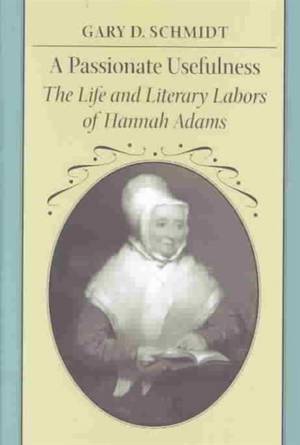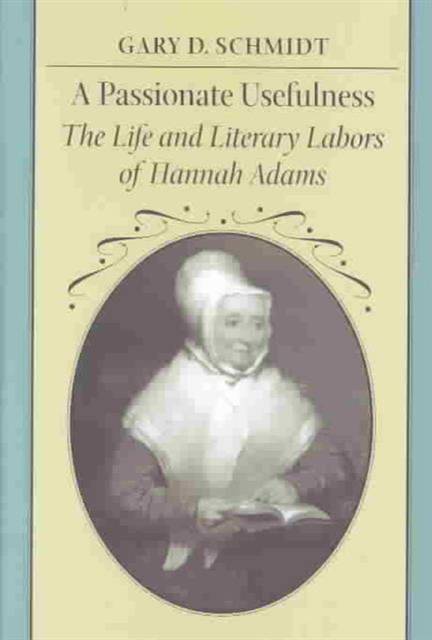
- Retrait gratuit dans votre magasin Club
- 7.000.000 titres dans notre catalogue
- Payer en toute sécurité
- Toujours un magasin près de chez vous
- Retrait gratuit dans votre magasin Club
- 7.000.000 titres dans notre catalogue
- Payer en toute sécurité
- Toujours un magasin près de chez vous
A Passionate Usefulness
The Life and Literary Labors of Hannah Adams
Gary D SchmidtDescription
In a literary environment dominated by men, the first American to earn a living as a writer and to establish a reputation on both sides of the Atlantic was, miraculously, a woman. Hannah Adams dared to enter--and in some ways was forced to enter--a sphere of literature that had, in eighteenth-century America, been solely a male province. Driven by poverty and necessity, and aided by an extraordinarily adept mind and keen sense of business, Adams authored works on New England history, sectarian history, and Jewish history, using and citing the most recent scholarly works being published in Great Britain and America. As a female writer, she would always remain something of an outsider, but her accomplishments did not by any means go unrecognized: embraced by the Boston intelligentsia and highly regarded throughout New England, Adams came to epitomize the possibility in a democratic society that anyone could rise to a circle of intellectual elites.
In A Passionate Usefulness, the first book-length biography of this remarkable figure, Gary Schmidt focuses primarily on the intimate connection between Adams's reading and her own literary work. Hers is the story of incipient scholarship in the new nation, the story of a dependence that evolved into intellectual independence. Schmidt sets Adams's works in the context of her early poverty and desperate family situation, her decade-long feud with one of New England's most powerful Calvinist ministers, her alliance with the budding Unitarian movement in Boston, and her work establishing the first evangelical mission to Palestine (a task she accomplished virtually single-handedly).
Today Adams still holds a place not only as a female writer who made her way economically in the book business before any other woman--or male writer--could do so, but also as a key figure in the transitional generation between the American Revolution and the Renaissance upon whose groundwork much of the country's later literature would build.
Spécifications
Parties prenantes
- Auteur(s) :
- Editeur:
Contenu
- Nombre de pages :
- 416
- Langue:
- Anglais
Caractéristiques
- EAN:
- 9780813922720
- Date de parution :
- 04-06-04
- Format:
- Livre relié
- Format numérique:
- Genaaid
- Dimensions :
- 161 mm x 244 mm
- Poids :
- 802 g







